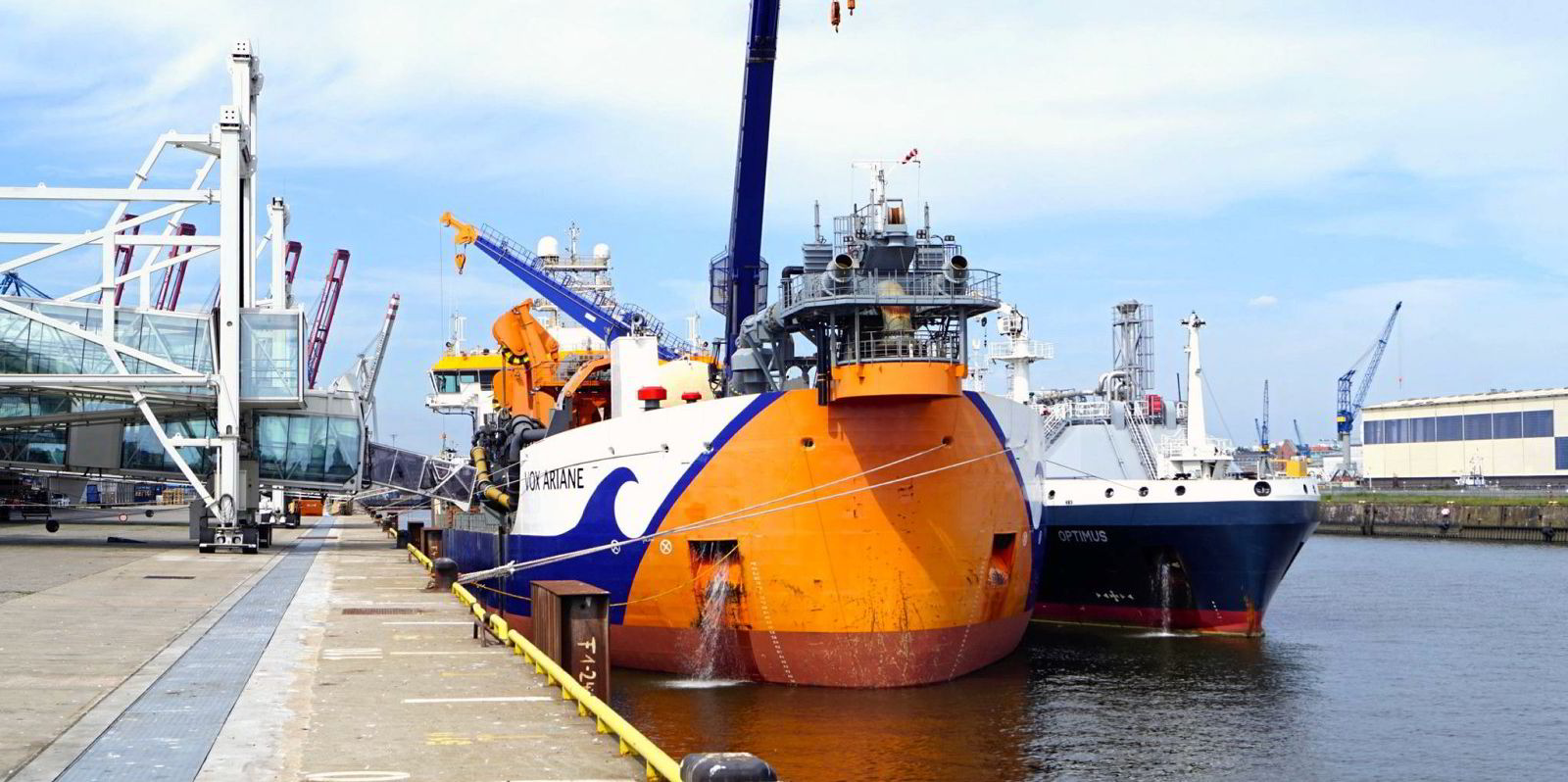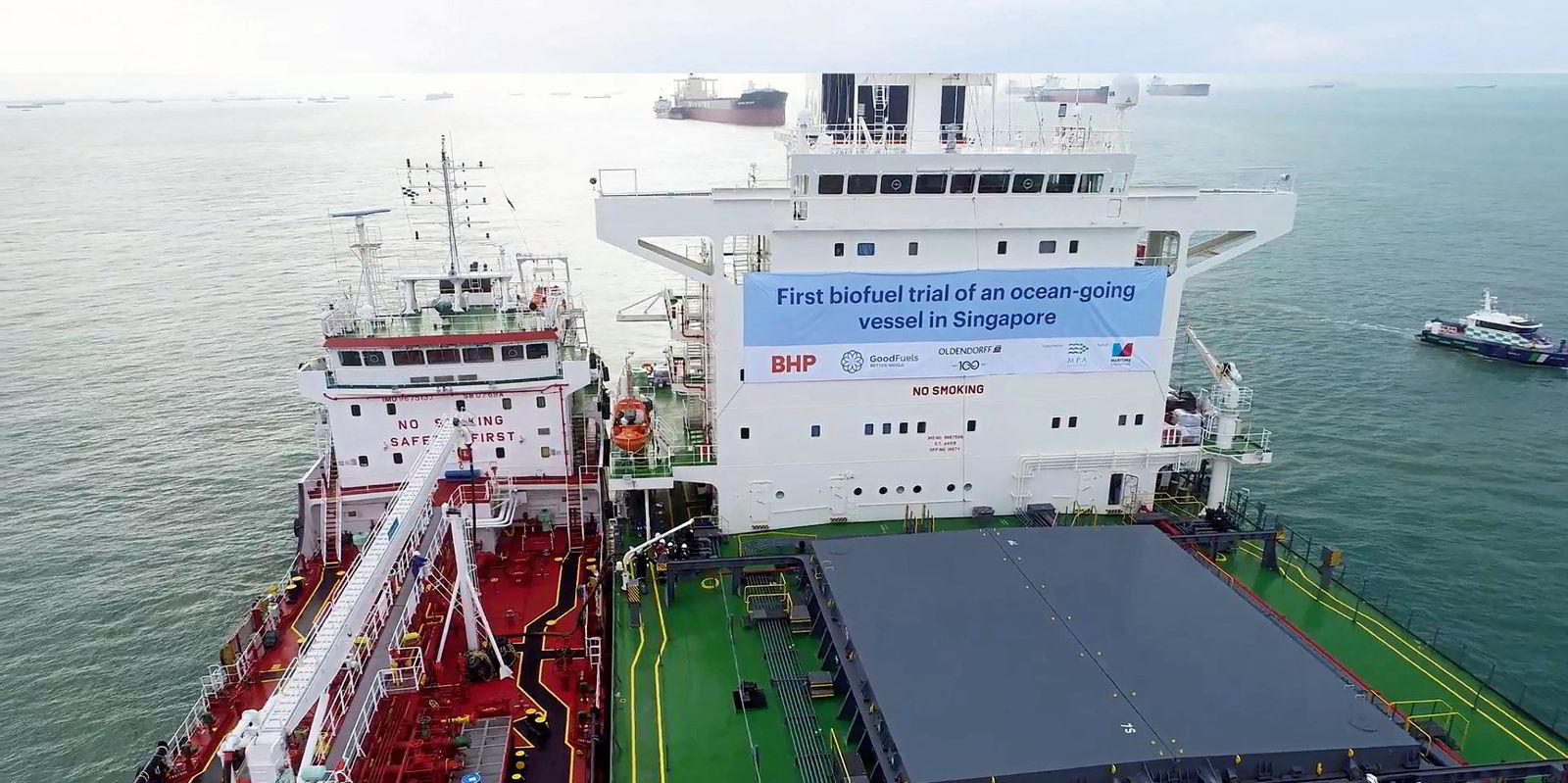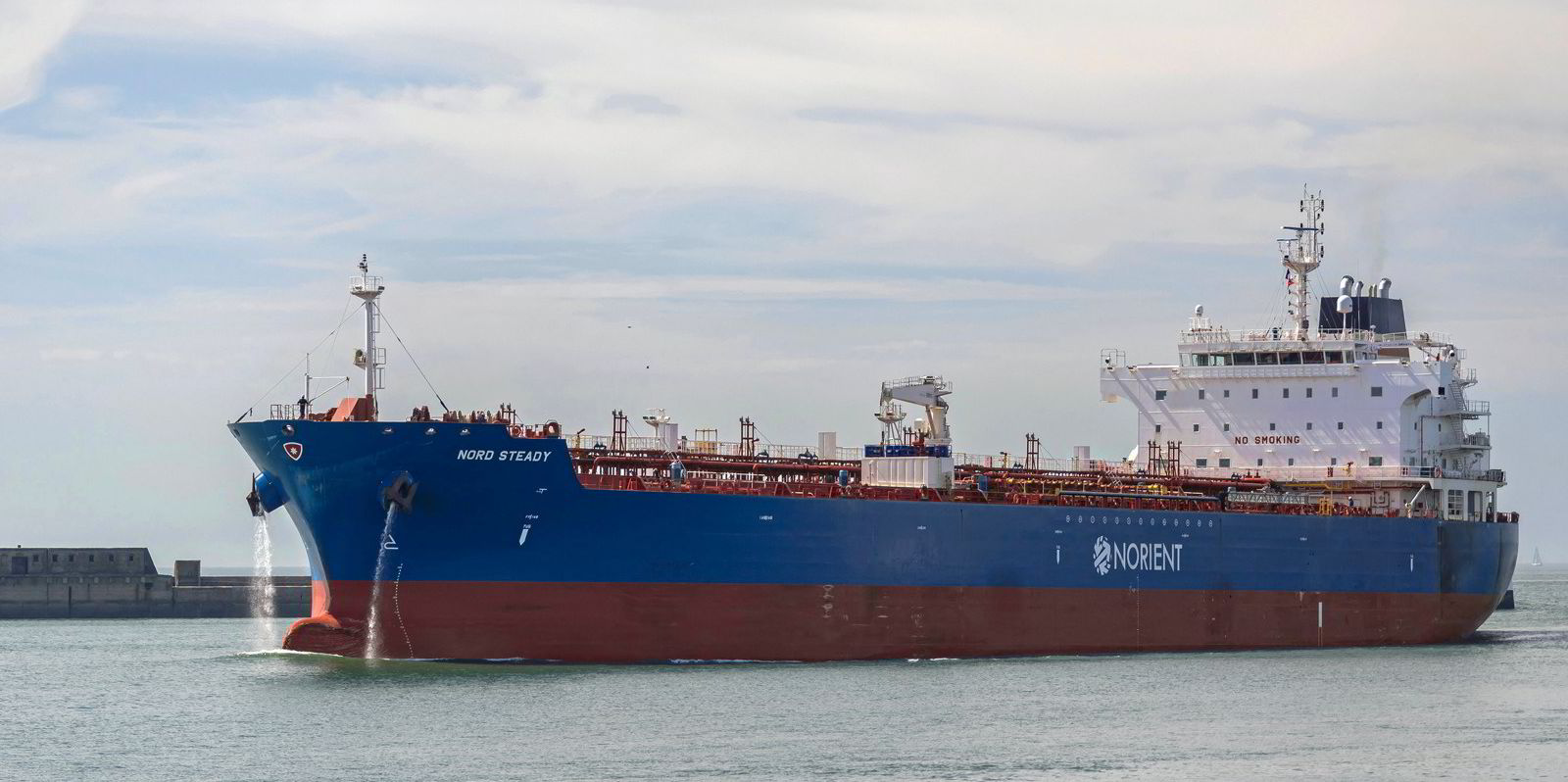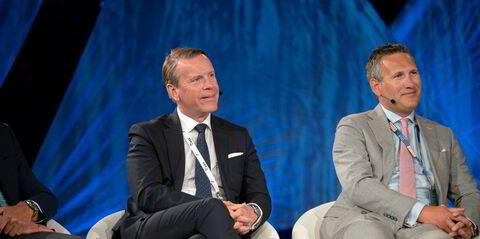Dutch bunker provider Titan has moved into carbon insetting with blockchain-based, transport sector-focused platform 123Carbon.
On Thursday the two companies said they have issued the first LNG-based carbon inset tokens.
Titan will hold these tokens — each of which represents one tonne of CO2 reduction in the value chain — in a digital wallet on 123Carbon’s registry.
The bunker supplier, who was the first marine company on 123Carbon’s platform, said Titan can then generate these certificates and then resell them to end-customers and shippers who want to use them to reduce their own emissions.
Explaining the concept, the partners said carbon insetting allows fuel suppliers and vessel operators to disclose and value the carbon reductions of lower carbon intensity fuels with freight forwarders and shippers across the global value chain, enabling them to decarbonise their own supply chains.
The two companies stressed that there are strict requirements for the generation and allocation of these insets.
These have been defined on a global level by Dutch NGO and carbon accounting standards developer Smart Freight Centre (SFC). In June 2022 the SFC published its multi-modal Book & Claim methodology, which deals with topics like calculation rules, additionality, allocation and reporting of insetting.
123Carbon issues the insets to Titan based on this methodology.
Titan officials said using bio-fuels, like liquefied bio-methane (LBM) or bio-LNG, is more expensive so this is one way of recouping the additional value of these is by letting the end customer pay for these. It is a disclosure mechanism for end-customer so they can claim emissions reductions and enable Titan to scale up its green production more quickly, one explained.
The bunker supplier said: “Titan is actively engaging carriers with an LNG fleet to tokenise their activities and scale this solution across the market. It is also in active discussions with shippers that are seeking high quality and affordable insets that provide transparency and integrity.”
Titan director of zero-carbon Caspar Gooren said: “Insetting can be an effective means of expediting the energy transition in shipping, which is currently blocked by price levels; fossil fuels remain cheaper than renewable fuels.
“The insetting system helps to finance this price gap. It forms a new carbon economy: a new system that can incentivise the use of cleaner fuel alternatives.”
123Carbon co-founder and managing director Jeroen van Heiningen said: “The need for carbon insetting is clear.
Van Heiningen said the company’s platform provides the “right tools to generate and transfer these insets safely and transparently” and the partners are working to expand the scope of insets to include LNG and LBM.





